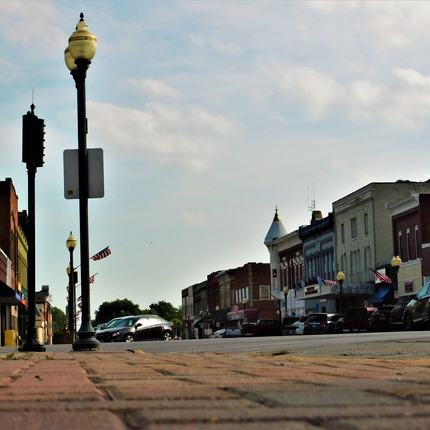By Cody Smith, former staff member
As each of us continues to adapt to the ongoing COVID-19 pandemic, it has become abundantly clear—taking care of our community is a crucial component of our way of life in rural Iowa. I continue to hear stories of neighbors helping neighbors and families pitching in to lend a helping hand. This unprecedented situation has created real economic hardships for many rural Iowans, leaving many of us searching for ways to help out.
So, if you find yourself in a situation with a little more downtime than usual, or are simply looking for ways to help advocate for your community, here’s a list of five activities you can do while social distancing that support Iowa’s rural communities.
Analyze what your state lawmakers have been up to and share your thoughts
On Jan. 14, Iowa Gov. Kim Reynolds announced her plan for a one-cent sales tax increase as part of her Invest in Iowa proposal to the Legislature. This one-cent increase includes the necessary three-eighths of one cent increase to fund the Natural Resources & Outdoor Recreation Trust, or IWILL. After completing our most recent analysis, we released a statement announcing our support for the legislation on Feb. 13.
On March 12, Iowa Gov. Kim Reynolds signed Senate File 583 into law. The measure protects investments in solar energy from farmers, small businesses, and others by writing net metering into state code.
Is your community a good fit for clean energy?
We have partnered with the Iowa Environmental Council to develop a best practices guide for counties developing utility-scale solar siting ordinances, Iowa Solar Siting Resource Guide: Best Practices for Counties.
The Center also has resources on our website, including the economic benefits solar energy installations and wind energy bring to rural areas.
Investigate strategies that help us build more resilient rural communities
At the Center for Rural Affairs, we believe the state’s most effective path to cleaner water includes a strong emphasis on a watershed approach. We have created the Iowa Watershed Resource Library to serve to inform, assist, and empower those who live within their boundaries. It includes these fact sheets:
- Watershed Management Authorities in Iowa
- Watershed Planning 101
- Leveraging local funds for watershed improvement
Identify ways you can adapt to a changing climate while supporting your community
"Building Climate Resiliency," a series of four fact sheets focusing on building rural resiliency in the face of climate change, offers tips and information for educators, rural entrepreneurs, homeowners, and farmers and landowners.
Make sure you are counted
By now, you have most likely received a postcard or letter in your mailbox inviting you to participate in the 2020 Census. We encourage you to do your part by taking time to fill out the census online, per the instructions mailed to you. Set forth as an effort to count everyone in the U.S., the data collected as part of the census impacts everyone who is, or is not, counted. At its most basic level, data collected through the census ensures equal representation in government, the distribution of federal tax dollars back to states, and provides much-needed data and counts. With this data, policy and decision makers at all levels of government, as well as sectors of business, industry, and services, can make informed decisions. For more information, visit 2020census.gov.





